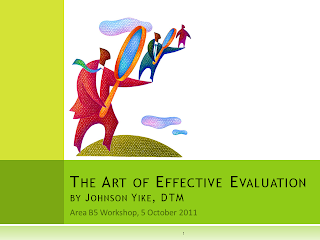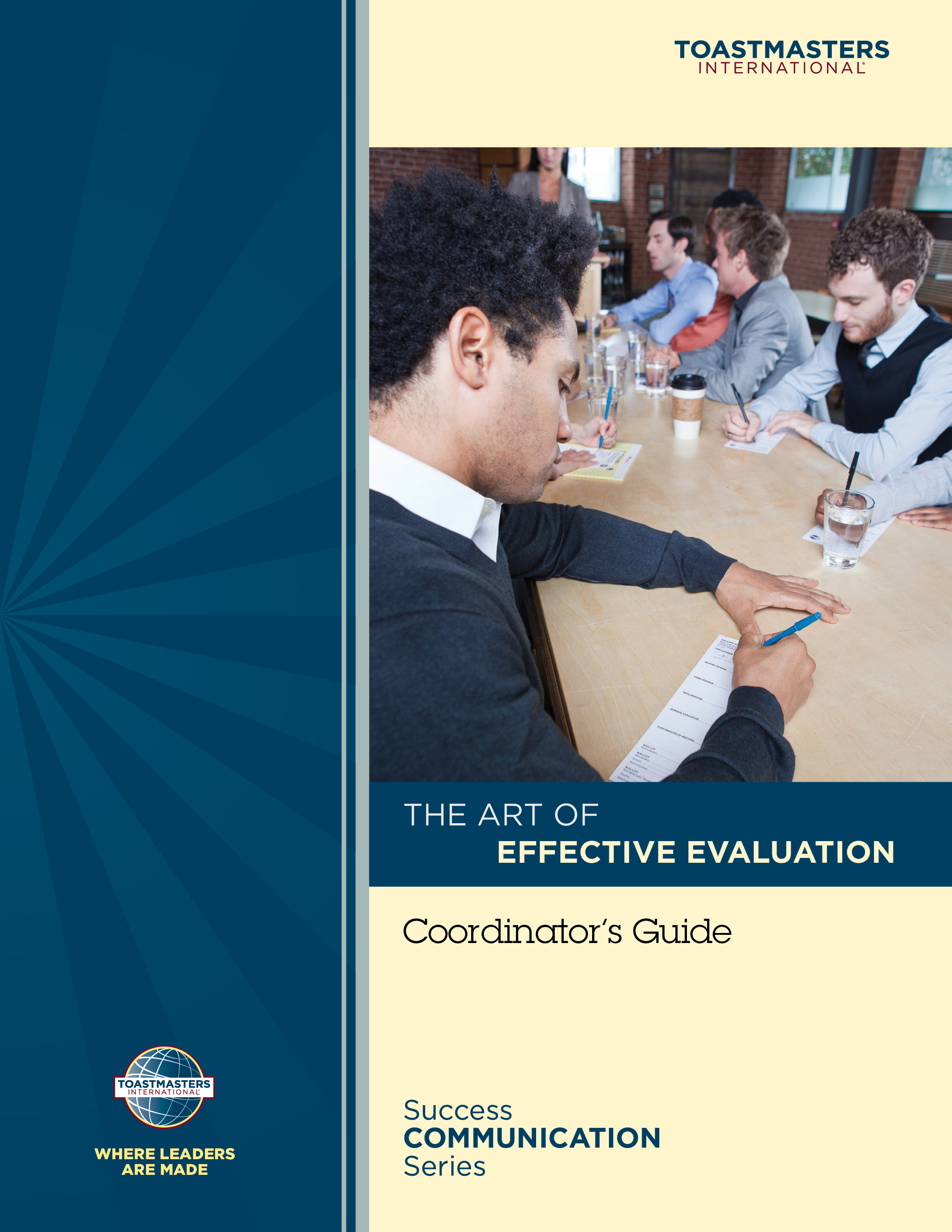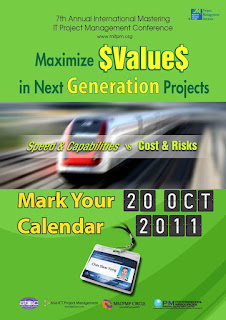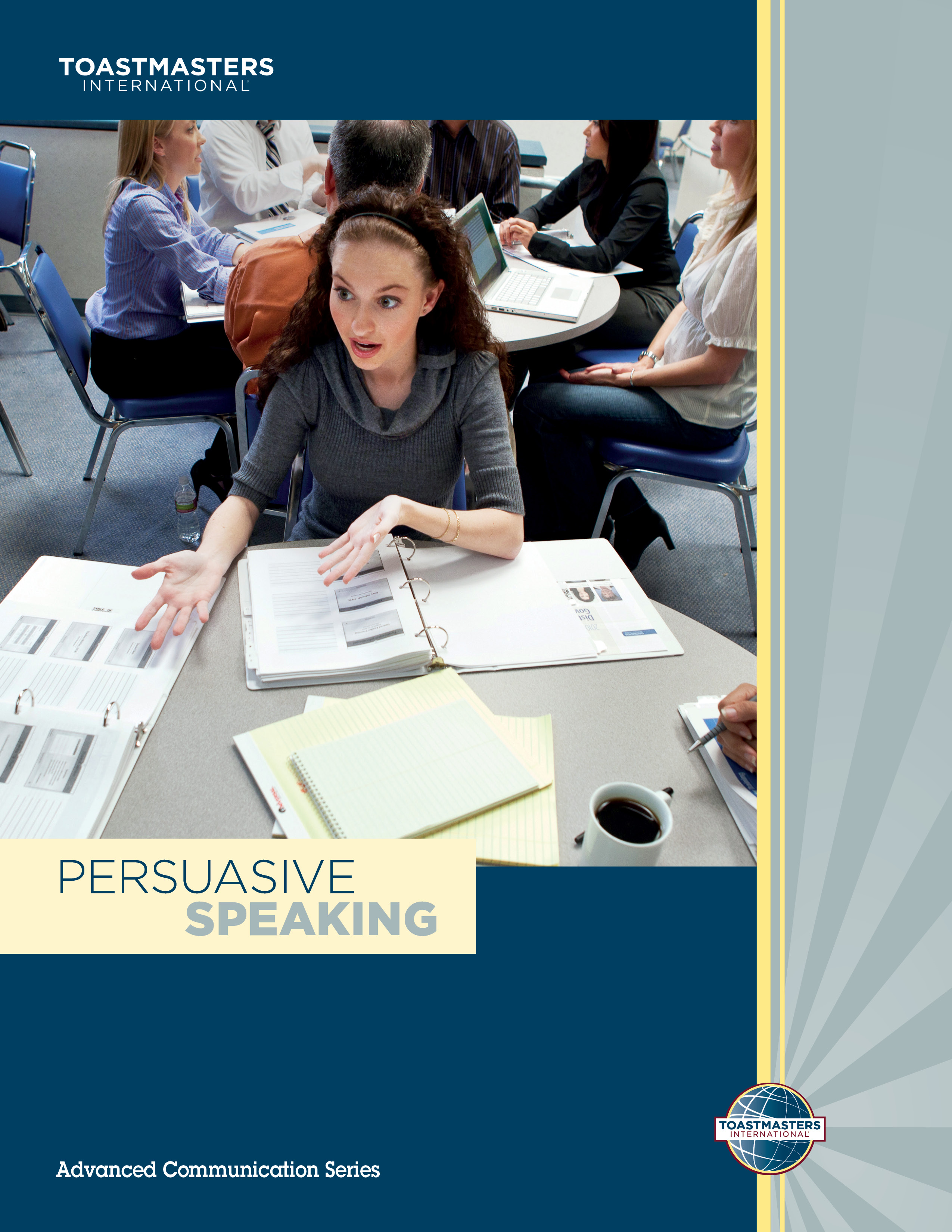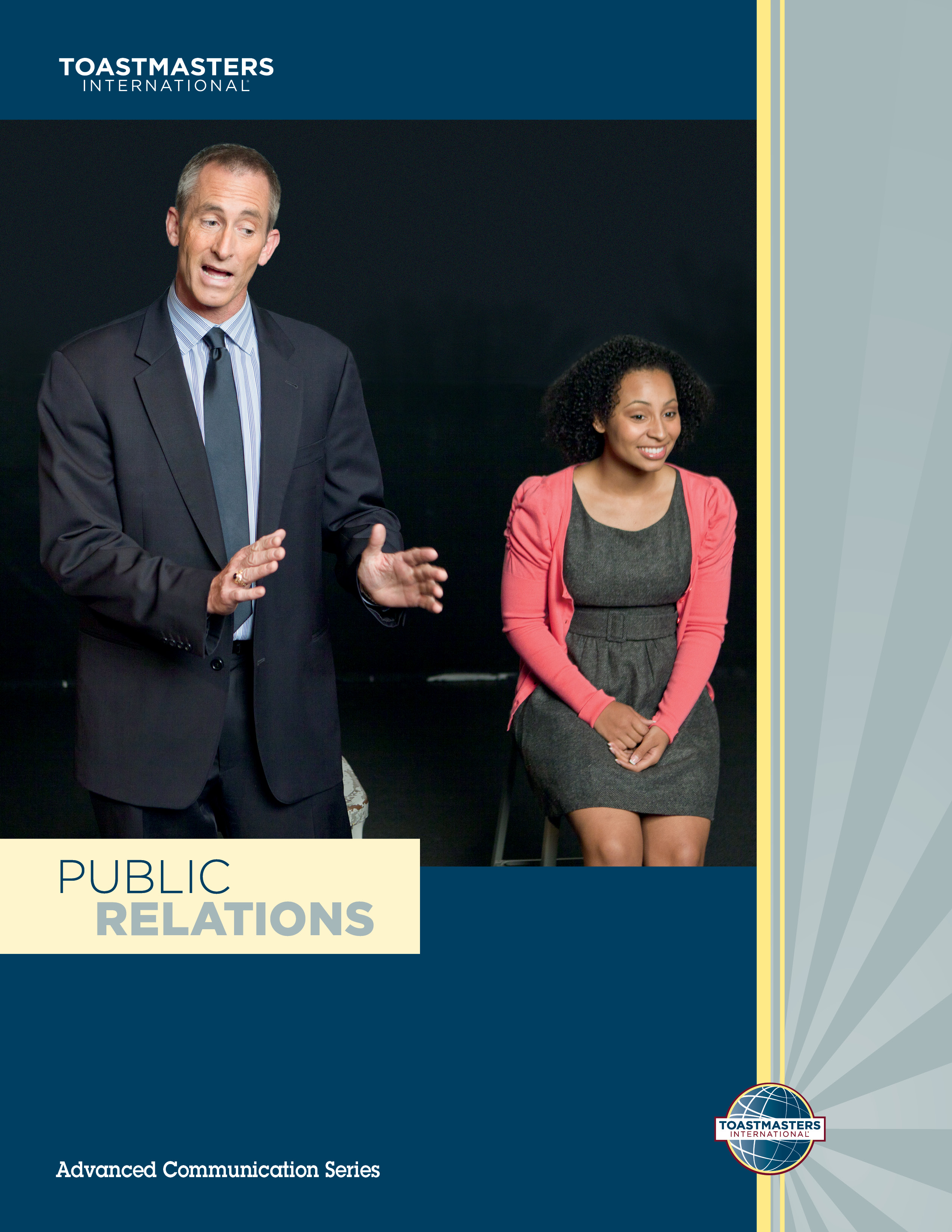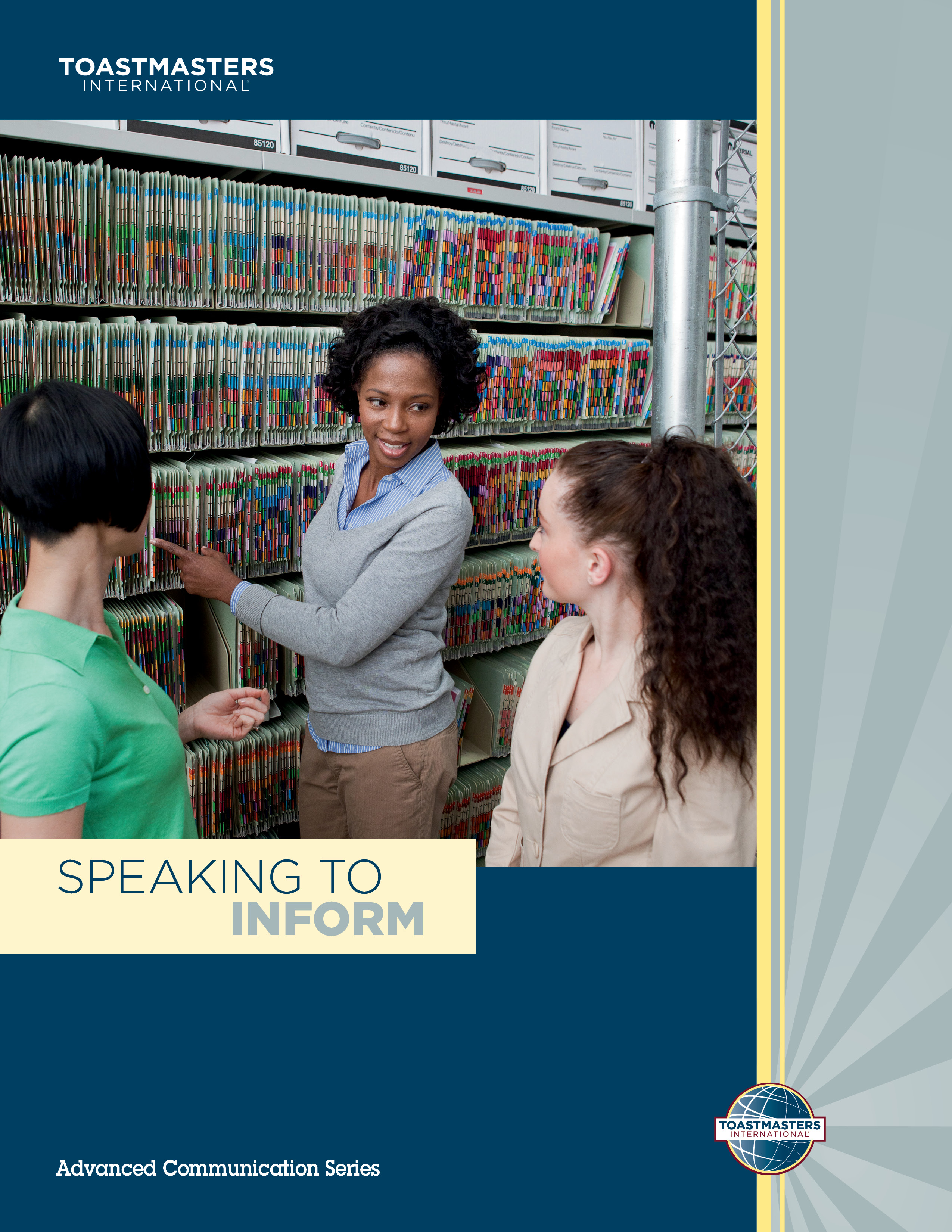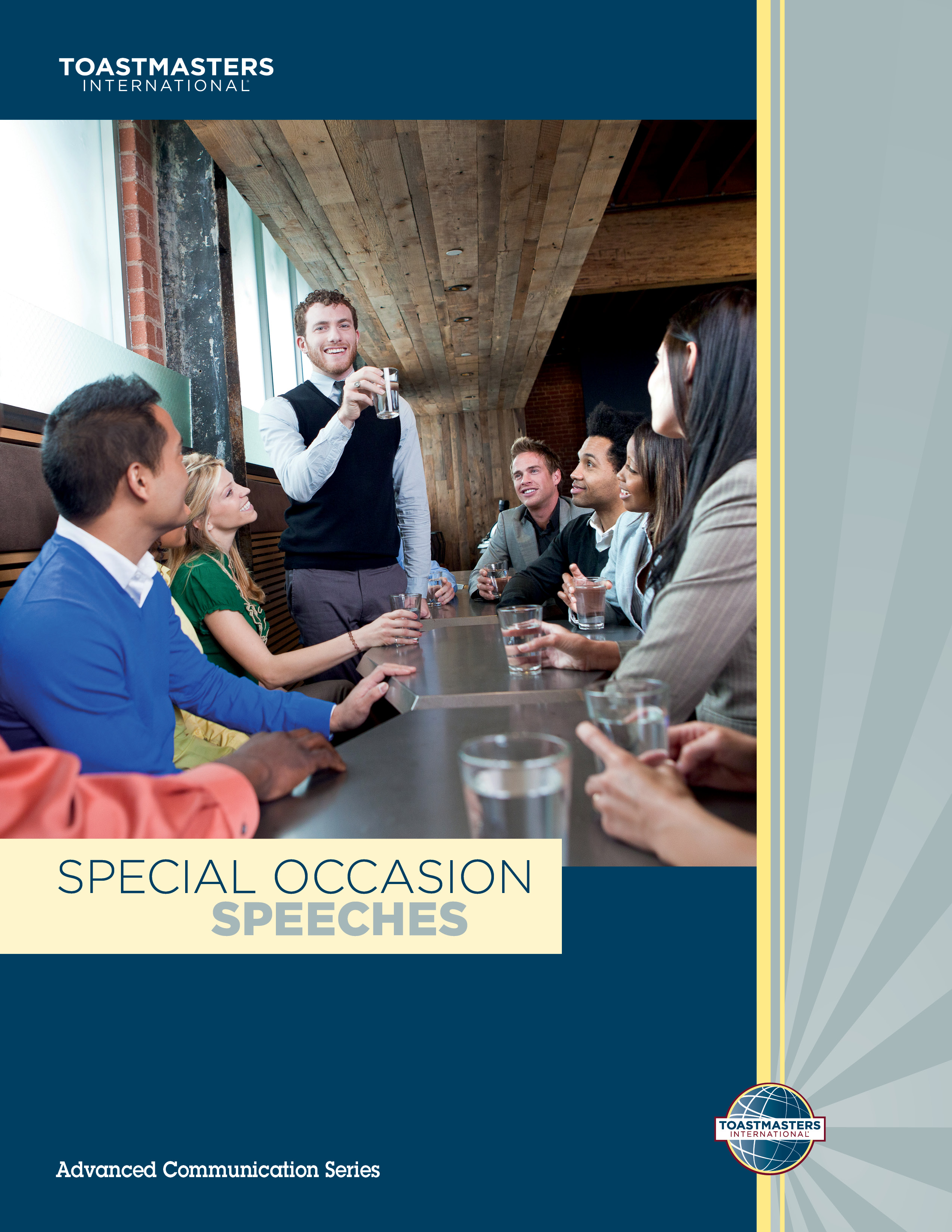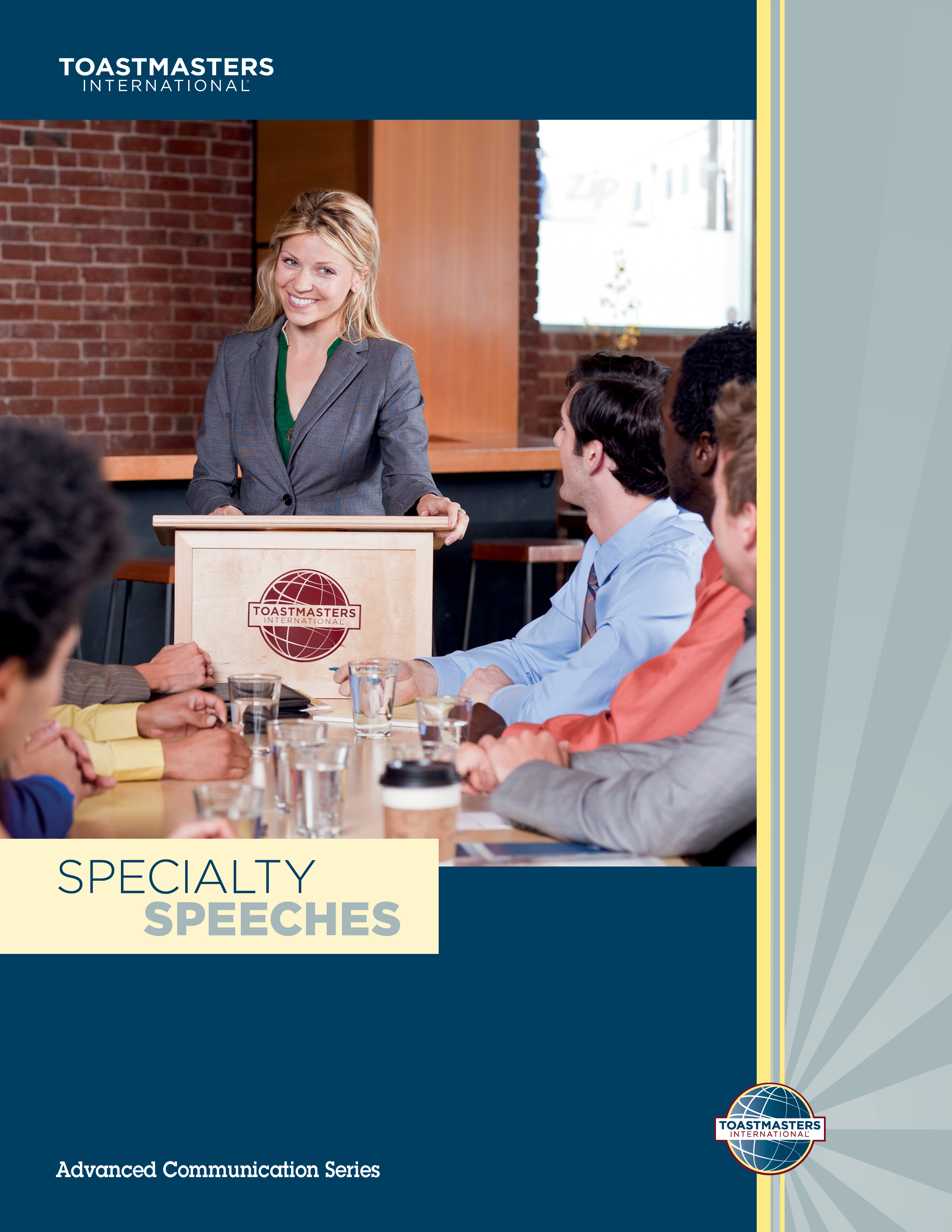advanced manual is the most challenging manual. I had the pleasure to witness a project from this manual during a recent Toastmasters meeting on 18 October 2011. The speaker is from Speaker's Dream Toastmasters club and he was presenting
.
The King’s Speech
(at the Westminister Abbey, rehearsals for the King’s Coronation)
(King George enters the cathedral, with Archbishop greeting the King in front of the throne)
BERTIE : Archbishop.
ARCHBISHOP : Welcome, your majesty. What a glorious transformation, sir. I hope you forgive us if we continue our preparations. Now er well, allow me to guide you through the ceremony.
(They begin to walk together, Lionel a few paces behind)
ARCHBISHOP : We begin of course at the west door, into the naïve.
LIONEL : I see your pronouncements are to be broadcast, Archbishop.
ARCHBISHOP : Ah yes wireless, it is indeed a Pandora’s box. But I’m afraid I also have to
permit the news reel cameras, the product of which I shall personally edit.
LIONEL : Without momentary hesitations.
BERTIE : This is Doctor Lionel Logue of Harley Street. He’s… my speech therapist.
LIONEL : Grace.
ARCHBISHOP : Specialist?! Had I known that your Majesty is seeking assistance; I would
have made my own recommendations.
BERTIE : Dr Loge would be attending the coronation.
ARCHBISHOP : Well of course I would have to speak to the Dean, but it would be
extremely difficult.
BERTIE : I should like to… Doctor to be seated in the… King’s box.
ARCHBISHOP : But members of your family will be seated there, sir.
BERTIE : That is why it is suitable.
LIONEL : And now if you don’t mind, your Grace, we would need the premises.
ARCHBISHOP : My dear Fellow, this is Westminister Abbey. The church must prepare his
Majesty.
LIONEL : My preparations are equally as important.
ARCHBISHOP : (pause)
LIONEL : With complete privacy, if, if you don’t mind.
BERTIE : Those are my wishes, Your Grace.
ARCHBISHOP : I will… empty the Abbey at your Majesty’s disposal this evening. Your
Majesty.
(Scene Two)
(Logan enters the empty Westminister Abbey, meeting King George alone.)
LIONEL : I can’t believe I’m walking on Chaucer and Handel and Dickens. Everything alright? Let’s get cracking.
(Bertie, seated on a ceremonial chair, does not rise.)
BERTIE : I’m not here to rehearse, Doctor Logue.
Pause-(CONT’D) True, you never called yourself ‘Doctor’. I did that to you. No diploma, no training, no qualifications. Just a great deal of nerve.
LIONEL : Ah, the star chamber inquisition, is it?
BERTIE : You asked for trust and total equality.
LIONEL : Bertie, I heard you at Wembley, I was there. I heard you. My son Laurie said “Do you think you could help that poor man?” I replied “If I had the chance”.
BERTIE : What, as a failed actor?!
LIONEL : It’s true, I’m not a doctor, and yes I acted a bit, recited in pubs and taught elocution in schools. When the Great War came, our boys were pouring back from the front, shell-shocked and unable to speak and somebody said, “Lionel, you’re very good at all this speech stuff. Do you think you could possibly help these poor buggers”. I did muscle therapy, exercise, relaxation, but I knew I had to go deeper. Those poor young blokes had cried out in fear, and no-one was listening to them. My job was to give them faith in their voice and let them know that a friend was listening. That must ring a few bells with you, Bertie.
BERTIE : You give a very noble account of yourself.
LIONEL : Make inquiries. It’s all true.
BERTIE : Inquiries have been made! You have no idea who I have breathing down my neck. I vouched for you and you have no credentials.
LIONEL : But lots of success! I can’t show you a certificate – there was no training then. All I know I know by experience, and that war was some experience. My plaque says, “L. Logue, Speech Defects. No Dr., no letters after y name.
(with mock seriousness)
Lock me in the Tower.
BERTIE : I would if I could!
LIONEL : On what charge?
BERTIE : Fraud! With war looming, you’ve saddle this nation with a voiceless King. Destroyed the happiness of my family… all for the sake of ensnaring a star patient you knew you couldn’t possibly assist!
(His desperation spills out. He pulls himself out the chair, striding past Lionel.)
BERTIE : It’ll be like mad King George the Third, there’ll be Mad King George the Stammerer, who let his people down so badly in their hour of need!
(Lionel sits down on the chair of Edward the Confessor)
BERTIE : What’re you doing? Get up! You can’t sit there!
(Overlapping-)
LIONEL : Why not? It’s a chair.
BERTIE : No, it’s not, that is Saint Edward’s Chair –
LIONEL : People have carved their initials into it!
BERTIE : That chair is the seat on which every King and Queen-
LIONEL : It’s held in place by a large rock!
BERTIE : That is the Stone of Scone, you are trivializing everything –
LIONEL : I don’t care. I don’t care how many Royal arses have sat in this chair –
(Overlapping-)
BERTIE : Listen to me…!
LIONEL : Listen to you?! By what right?
BERTIE : Divine right, if you must! I’m your King! ! !
LIONEL : Nooo you’re not! Told me so yourself. Said you didn’t want it. So why should I waste my time listening to you?
BERTIE : Because I have a right to be heard!
LIONEL : Heard as what ? !
BERTIE : A man! I HAVE A VOICE ! ! !
LIONEL : (quietly) Yes you do. You have such perseverance, Bertie, you’re the bravest man I know. And you’ll make a bloody good king.
(Bertie stares at him.)
(A familiar voice is heard from the shadows.)
VOICE : What on earth’s going on, Sir?
BERTIE : It’s all right, Archbishop.
ARCHBISHOP: Mr Logue, you should know that I have found a replacement English specialist with impeccable credentials. Hence, your services will no longer be required.
BERTIE : I’m sorry?
ARCHBISHOP : Your Majesty’s function is to consult and be advised. You didn’t consult, but you’ve just been advised.
BERTIE : Now I advise you: in this personal matter I will make my own decision.
ARCHBISHOP: My concern is for the head upon which I must place the crown.
BERTIE : I appreciate that Archbishop, but it’s my head!
ARCHBISHOP: Your humble servant.
(Bishop turns on his heel and is gone, leaving Bertie shaken, with both anger and fear.)
LIONEL : Thank you Bertie. Shall we rehearse?
(Bertie sits in the ceremonial chair once more.)
LIONEL : As soon as you and Elizabeth enter the West door, you’ll be greeted with the hymn “I Was Glad When They Said Unto Me.” You won’t actually be that glad, because they sing it for a great long time. Then your friend the Archbishop will pounce up and say, “Sir, is Your Majesty willing to take The Oath?” You say . . .
BERTIE : “I am willing”.
LIONEL : Course you are! I’ll see what it sounds like from the cheap seats so even your old nanny can hear. “Will you govern your peoples of Great Britain, Ireland, Canada, Australia and New Zealand according to their lands and customs?”
BERTIE : I solemnly promise so do so.
LIONEL : LOUDER! I can’t hear you up the back.
BERTIE : “I SOLEMNLY PROMISE TO DO SO!”
LIONEL : Very good! “Will you to your power cause Law and Justice, in Mercy, to be executed in all your judgments?”
BERTIE : “I will.” “I WILL!”
LIONEL : Then a long bit about upholding the faith, rubbish, rubbish, rubbish. To which you finally say . . .
BERTIE : “These things which I have herebefore promised, I will perform and keep. So help me God.”
LIONEL : That’s all you have to say. Four short responses, kiss the book and sign the oath. There you are: You’re King! Easy.
Enjoy.

